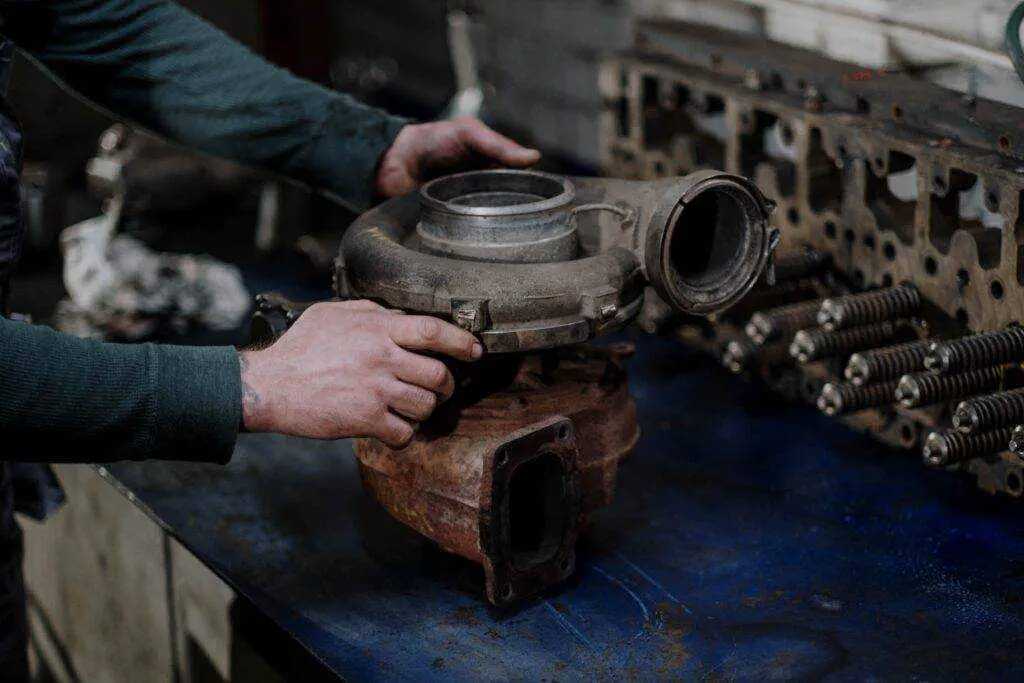Engine oil is the lifeblood of your car. It lubricates internal components, keeps the engine cool, and cleans away contaminants. When oil levels run low or you run completely out of oil, engine damage can occur rapidly. Learning to recognize the signs of engine damage from insufficient oil can help you address problems quickly and potentially avoid costly repairs.
What Does Oil Do For Your Engine?
To understand how a lack of oil damages engines, it helps first to understand what oil does:
- Lubrication – Oil coats metal components like bearings, pistons, valves, and cylinder walls. This lubricating film separates surfaces so they don’t directly contact each other as they move. The oil film reduces friction, heat, and wear.
- Cooling – In addition to the cooling system, oil helps carry heat away from the combustion process and moving components. Insufficient oil allows components to overheat.
- Cleaning – Detergents in engine oil capture contaminants like dirt, debris, and metal shavings. The oil circulates these contaminants until the oil filter captures them.
- Sealing – Oil seals tiny gaps between piston rings and cylinder walls. Low oil allows combustion gases to blow by the pistons, reducing engine power and efficiency.
Signs Your Engine Has Been Damaged by Insufficient Oil
How to Tell If Engine is Damage From No Oil? Catching oil problems early provides the best chance of minimizing engine damage. Here are six key signs to watch out for:
1. Low Oil Pressure Warning Light
Most vehicles have an oil pressure warning light on the dash. This light indicates oil levels are dangerously low or oil isn’t circulating properly to lubricate the engine. Don’t ignore this warning light – it should be addressed immediately to avoid severe engine damage.
2. Unusual Engine Noises
Low oil allows metal components to make direct contact, causing friction and wear. This can produce grinding, knocking, or squealing noises from the engine bay. Strange engine sounds when accelerating or idling suggest your engine internals are receiving inadequate lubrication.
3. Oil Leaks
Excessive oil consumption can be caused by external or internal oil leaks. Look under your vehicle for obvious oil leaks. You may also notice oil spray around the valve cover. White/blue exhaust smoke indicates oil is leaking past worn piston rings or valve seals into the combustion chamber.
4. Reduced Engine Power
Adequate oil minimizes friction to help your engine maintain compression and generate peak power. Insufficient oil causes increased friction that can reduce engine power. If your car feels sluggish, it could be caused by low oil levels.
5. Burning Oil Smell
The smell of burning oil usually indicates a leak is occurring on a hot engine surface. It can also suggest oil levels are so low that internal components are burning oil through excessive friction and temperatures. Either scenario means you need to address an oil issue promptly.
6. High Engine Operating Temperatures
How to Tell If Engine is Damage From No Oil? Along with the cooling system, oil helps regulate engine temperature by transferring heat away from components. Low oil allows heat to build up, leading to elevated coolant temperatures. If your engine temperature gauge is reading hotter than normal, low oil could be the culprit.
What Causes Low or No Engine Oil?
There are a few common causes of abnormally low or no engine oil:
- Infrequent oil changes – Oil breaks down over time from use and exposure to heat. Skipping oil changes allows oil to thin out and lose effectiveness.
- Oil leaks – How to Tell If Engine is Damage From No Oil? Damaged seals or gaskets can cause external oil leaks. Internal leaks can occur around pistons, valves, and turbochargers.
- Excess oil consumption – Problems like worn piston rings, damaged valve seals, and clogged breather systems can cause oil to be consumed internally and not return to the oil pan.
- Incorrect oil fill after change – Even attentive owners can accidentally underfill their engine oil after a change. Always double-check the dipstick before driving away from an oil change.
How Long Will an Engine Run Without Oil?
How to Tell If Engine is Damage From No Oil? It’s impossible to predict exactly how long an engine will run without oil before seizing. However, severe engine damage is likely to occur quickly:
- Within 5 minutes – The oil film will be completely gone from some components leading to metal-on-metal contact and friction.
- Within 15 minutes – Bearings, camshafts, and other high friction components will begin to scuff, score, or seize. Pistons can start seizing against cylinder walls.
- Within 30 minutes – Complete engine seizure is likely as temperatures rise, parts weld together, and moving components lock up.
Even running your engine for less than a minute without oil can allow permanent damage to occur in some components. Never start or run an engine known to be low or out of oil.

Can You Save an Engine with No Oil?
It depends on how long the engine ran without oil and the extent of damage:
- Brief run – If the engine was only run for a few seconds without oil, you may have gotten away with minimal damage. Top off the oil immediately and look for any of the symptoms above.
- Moderate damage – Sustained running with low oil can damage bearings, piston rings, cylinder walls, and turbocharger components. The engine may still run but will likely need reconditioning.
- Severe damage – If the engine seized and stopped running completely, internal components have likely welded themselves together from extreme pressures and heat. A full engine rebuild or replacement is probably required.
How to Tell If Engine is Damage From No Oil? Act quickly at the first sign of low oil to maximize your chances of minimal damage. Don’t run the engine any longer than necessary once you suspect a problem.
What Should You Do If Your Engine Has No Oil?
If your engine has been run with dangerously low or no oil, follow these steps:
- Do not start the engine or crank it any longer once oil loss is detected. This only exacerbates the damage.
- Check the dipstick to verify it’s not just low on oil. Top it off immediately if oil registers on the dipstick.
- Have the vehicle towed to a repair facility. Do not drive it yourself.
- Determine the extent of damage with a compression test or inspection. A professional can just let me know if repairs or rebuilds are worthwhile.
- Address the root cause of oil loss, such as leaks, before rebuilding damaged components.
- Perform a full oil change, replace the filter, and refill the oil to the proper level once repairs are complete.
- Start the engine and look for any unusual noises, smoke, or performance issues indicating lingering damage.


With quick action, some engines can be saved. However, allowing the engine to run without oil always risks severe irreversible damage.
FAQs – How to Tell If Engine is Damage From No Oil
How long does it take for an engine to damage without oil?
Severe engine damage can occur in as little as 5 minutes without oil. Within 15-30 minutes, a complete seizure is likely.
Can lack of oil cause engine damage?
Yes, the lack of adequate engine oil starves critical components of lubrication and cooling. This leads to excessive wear, friction, temperatures, and failure.
How do I know if I ruined my engine?
Symptoms like knocking noises, smoke, oil leaks, seizure, coolant in oil, and loss of power likely indicate major engine damage. A compression test by a mechanic can confirm the extent of damage.
Can an engine be fixed after running out of oil?
It depends on how long it ran without oil. Brief oil loss incidents can sometimes be repaired if the damage isn’t severe. But complete seizure after extensive operation without oil usually requires a full rebuild or replacement.
How long will a turbo last without oil?
Turbos rely on oil for bearing lubrication and cooling. Running them for more than 10-15 seconds without oil can lead to permanent damage from frictional heat and contact.
Can a damaged engine be fixed?
If damage is moderate, components like bearings, pistons, seals, and valves can often be reconditioned or replaced to salvage the engine. However severe damage like melted and welded internals will typically require a full engine replacement.
Key Takeaways – How to Tell If Engine is Damage From No Oil
- Engine oil provides critical lubrication, cooling, cleaning, and sealing functions. When oil is depleted, heat and friction rapidly damage components.
- Warning signs like oil lights, noises, leaks, and overheating should be addressed immediately to minimize damage.
- Most engines will sustain permanent damage after just minutes without oil, leading to partial or complete seizure.
- Act quickly at the first sign of low oil. Don’t run the engine without addressing the oil loss.
- With moderate damage, component replacement may salvage the engine. Severe damage usually requires a full rebuild or replacement.
How to Tell If Engine is Damage From No Oil? Protect your investment by staying vigilant about oil levels and changes. If you suspect oil loss, be sure to stop driving right away and have your vehicle properly inspected. With prompt action, catastrophic engine damage may be avoided.





